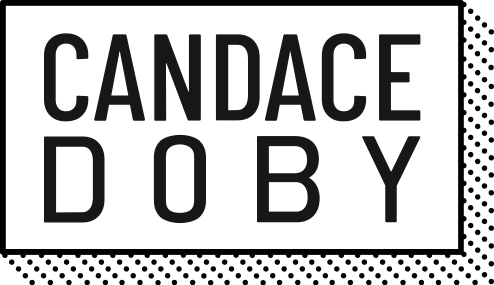In my ongoing quest to learn and understand more about courage, I recognized the need to understand more about risks, which are a central part of courage.
That recognition led me to the worldwide bestselling book, Against the Gods: The Remarkable Story of Risk by Peter L. Bernstein. In reading the book, I uncovered three reasons why our emotions make us miscalculate risks, and I considered how those miscalculations can slow us down from taking courageous actions that will help us grow personally and professionally.
Emotions cloud judgement.
Making good decisions about which risks to take requires rational thinking, which is the ability to consider and analyze information relevant to a particular situation. Against the Gods highlights the idea that emotions at full tilt can make it difficult for us to “question the relevance of the assumptions” we hold and use to support the decisions we make. When our emotions inhibit us from questioning our assumptions, we can get stuck in a loop of emotional reasoning where we assume (there’s that word again) certain emotions reflect the way things really are … when, in reality, they are completely different. This doesn’t mean that emotions can’t be helpful in directing our energy to specific areas that need attention. However, when we let our emotions run wild, they can cloud our judgment and weaken our ability to inquire, think critically and seek out the truth.
On a visit to Rome, Italy, I was responsible for chaperoning a group of teenage girls from the Vatican to the Colosseum. I was instructed by our seasoned guide to take the subway to get there. But, I was extremely hot, sweaty and tired from the overwhelming heat of the day. And, the subway seemed miles away. A local sensed my confusion and suggested that we could take the bus, instead, which would dropped us off close to the Colosseum. And, lucky for us, the stop was across the street. I decided we would ride the bus.
What I didn’t ask the local, though, was how often the bus ran and exactly how far we would be from the Colosseum at drop off. We waited for the bus for what seemed like an hour and then had to walk a mile to get to the gate. We almost missed our timed entry into the Colosseum … because of my feelings about the heat.
So, how do we temper emotions to help our rational brain emerge when we need to make a difficult decision? One solution is to employ a tool many psychologists have used to help their clients untangle themselves from the web of irrationality that emotions often get them into: emotional distancing.
Emotional distancing is the process of removing yourself psychologically from the center of a situation where emotions can gain intensity and repositioning yourself as an observer on the outside edge of the situation. Instead of thinking of what you should do in a situation, emotional distancing may lead you to consider what you would coach your best friend to do in the same situation.
Creating emotional distance between you and the situation can help you alleviate pressure, regain self-control and fire up your rational brain.
But, there’s another, more specific, way our emotions can get in the way of making rational decisions in the middle of risky or challenging situations.
Fear of loss constrains choices.
Amos Tversky, a leading researcher in human cognition who is quoted often in Against the Gods observed that people are not risk-averse, they are loss-averse.
“It’s not so much that people hate uncertainty — but rather they hate losing.”
This couldn’t be more true with one of my coaching clients who wanted to ask her boss for a well-deserved raise. In the beginning of our work together, a large segment of attention was dedicated to navigating through the risk of losing her job and influence as a result of her request. That’s what concerned her the most.
The fear of loss can cause us to overly (and sometimes irrationally) focus and rely on a small segment of information in a large consideration set to protect ourselves from pain. My client, in an effort to circumvent the consequences of loss, couldn’t recognize what she would potentially gain from honoring herself and her talent appropriately by requesting additional compensation — that, in the end, could come in different forms than money.
The shift in mental perception from losses to gains is a critical one.
According to research included in the book, “losses will always loom larger than gains.” It’s why we focus on negative potential outcomes more than desired ones and also why we are likely to experience intense risk-aversion in many decision making processes.
So, it becomes considerably important to us to put in the mental work to transform the perception of risk from chance of loss into opportunity for gain. In the end, we are not helpless beings irrevocably controlled by fate but rather empowered people who can make a choice within a set of opportunities.
Overestimation of the past and the present distorts reality.
An important, and final, way emotions can hijack our ability to appropriately calculate risks has to do with how much value we place on past and present experiences.
Against the Gods highlights the importance of sampling to risk-taking and says that, “we constantly use samples of the present and the past to guess about the future.”
To be fair, whatever data samples we choose to analyze within our decisions are incapable of representing the whole of reality.
But, when those samples are selected by emotion rather than relevance, things can get even trickier. Our emotions, according to the book, often push us to “seek shelter from unpleasant surprises.”
Overemphasizing emotionally-charged experiences from the past and present can distort reality, lead to unwise decisions and flawed assessments, and compel us to resort to dodges that, ultimately, disrespect rational thinking.
When dealing with uncertainty, which is an inherent part of risk-taking, we often demonstrate patterns of irrationality, inconsistency and incompetence that lead us to miscalculate risks.
So, how can we get better at selecting appropriate samples that will help us make rational decisions and not miscalculate risks? We can return to the first point in this post for help.
We need to “question the relevance of the assumptions that support the procedure.”
This may be one of the most important takeaways from Against the Gods: The Remarkable Story of Risk.
The willingness to take risks is important to growth on all levels, but the road to risk-taking can be clouded with emotional roadblocks that lead to irrationality and inconsistency in our decision making. To prevent our emotions from taking us down a path of unwise decisions and faulty evaluations, it is important for us to establish a pattern of inquiry that helps us assess the relevance of assumptions we make within our decisions and to keep our emotions in check.







